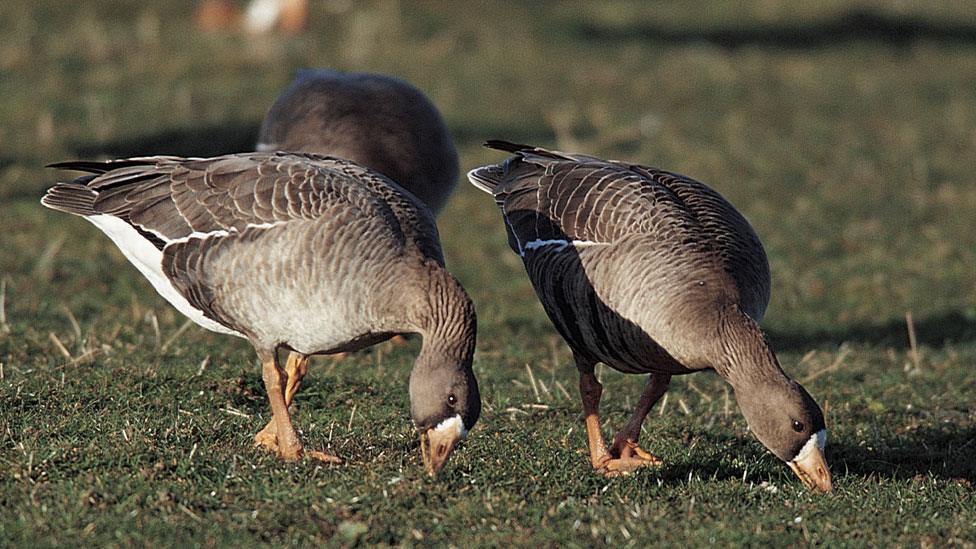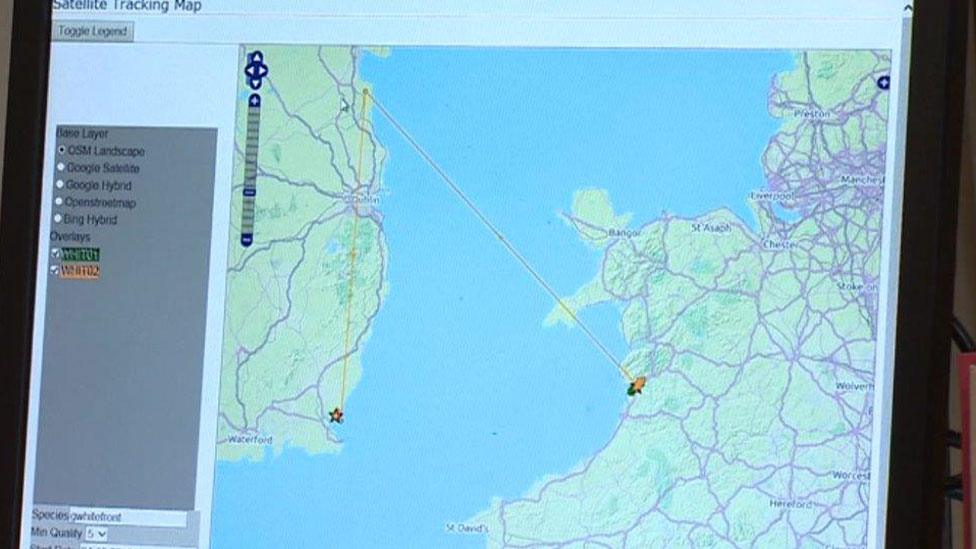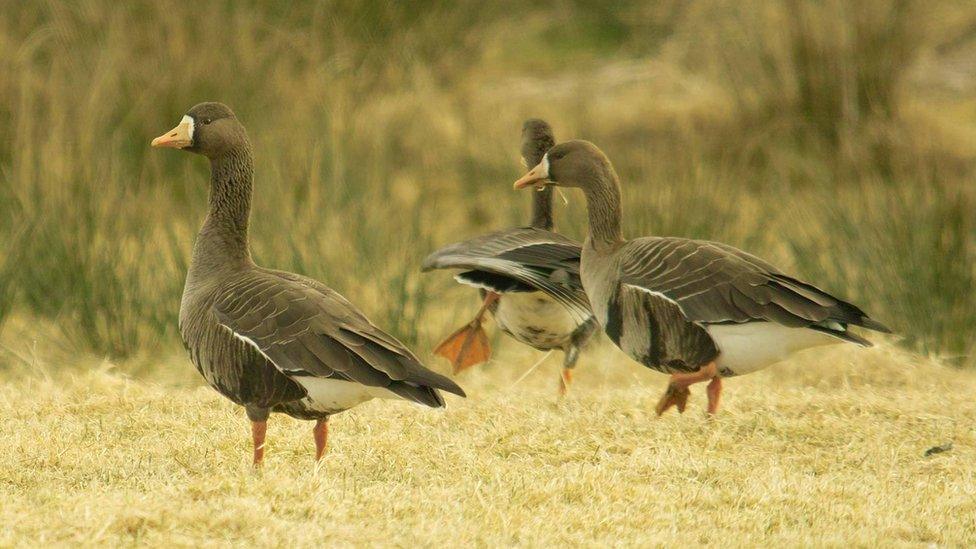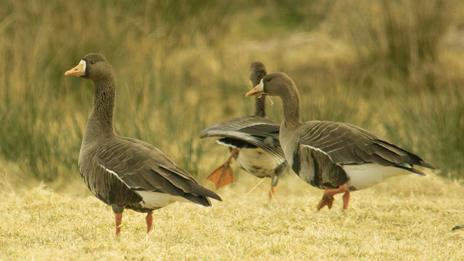RSPB tags rare geese at Ynyshir reserve due to decline
- Published

Greenland white-fronted geese spend the winter months in the British Isles
Electronic tags have been fitted to one of Europe's rarest birds to understand its dramatic decline at a Powys reserve.
The RSPB estimates the population of Greenland white-fronted geese at Ynyshir has fallen by 83% since 1990.
The research project is being funded by Welsh Government.
It comes after a decision by ministers in August not to implement an outright ban on shooting the rare birds caused controversy.
Their movements will be monitored in real time, helping the charity and other partners to understand their needs and put conservation measures in place.
It is hoped the scheme will contribute towards international efforts to boost numbers of the threatened species.
The global population of Greenland white-fronted geese is estimated to be 18,879 - the lowest recorded since spring 1985 - and a marked decline on the last estimate of 20,797 in spring 2014.
The birds, which breed in Greenland, migrate in spring and autumn through south and west Iceland to wintering grounds in the British Isles.
The majority head for Ireland and western Scotland.
Arfon Williams explains how the tagging project works
The geese that reach Wales have traditionally spent the winter at the Ynyshir reserve on the Dyfi Estuary, near Machynlleth, with a small and little-known roaming population on Anglesey.
Arfon Williams, countryside manager for RSPB Cymru, said he remembered a time about 15 to 20 years ago when there would be more than 150 geese at the Ynyshir site.
On the day we visited there were just 14 but the reason for the decline is not known.
Mr Williams said: "We know very little about these geese, a better understanding of how they use the area will give us more of an idea of their needs."
The electronic tags fitted to two of the geese allow a team of researchers to monitor their movements.
On a computer screen at the reserve's visitors centre, site manager Dave Anning takes me through what has been gleaned from the experiment so far.
"This is incredible data - we've learnt so much in such a short period of time.
"In particular, we're finding that they're covering a far bigger area of the estuary than we thought and using fields for drinking and roosting which we had no inclination about."

One tagged bird has already been tracked over to Ireland
One bird surprised researchers by leaving the Dyfi Estuary and crossing the Irish Sea in a single day, arriving at another bird reserve north of Dublin. It then flew south the following day to Wexford.
The team are keen to understand more about the relationship between the geese that choose to winter in Ireland and Wales and find out whether they are distinct populations or part of the same group in Greenland.
Meurig Rees, from the British Association of Shooting and Conservation, another partner in the project, said the decline in numbers had been "immense" and particularly severe in Wales.
"If we can monitor them, help them survive our winter here, make sure they feed properly and aren't disturbed - then we can send them back from Wales to Greenland to breed in a healthy state.
"That then gives them a better chance to survive the breeding season and hopefully the numbers over the years will increase coming back into Wales."
The Welsh Government caused controversy in August with a decision not to implement an outright ban on shooting these geese.
Ministers said a public consultation "did not generate any evidence to indicate white-fronted geese are currently being shot in Wales".
An existing voluntary ban on land where wildfowling clubs have specific rights to shoot is to be maintained and conservation efforts, like the scheme at Ynyshir, to be carried out.
At the time the RSPB said it was "bitterly disappointed", while the Welsh Ornithological Society said the decision was "appalling."
- Published19 August 2016

- Published12 August 2013
